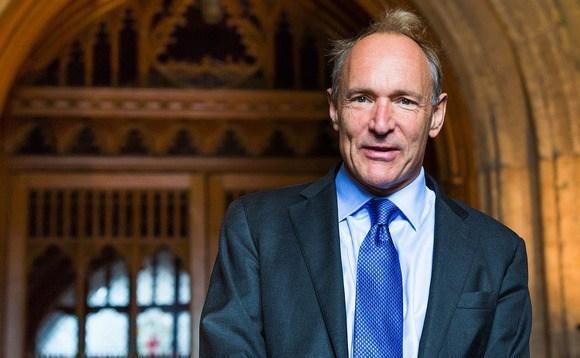British computer scientist Tim Berners-Lee – known as the inventor of the World Wide Web, says that the internet has become a cesspool of “clickbait and the viral spread of misinformation,” which needs to be “changed for the better,” reports CNBC.

In a Monday letter marking 30 years since he created a blueprint for the WWW in March 1989, the 63-year-old Oxford/MIT professor outlined three “sources of dysfunction” affecting the internet today; malicious behavior such as state-sponsored hacking and online harassment, “perverse” incentives driving misinformation, and unintended negative consequences such as polarizing, unhealthy conversations.
“Governments must translate laws and regulations for the digital age,” said Berners-Lee. “They must ensure markets remain competitive, innovative and open.“
Berners-Lee singled out Google and Facebook for rewarding clickbait and misinformation. He has previously knocked the tech giants for exploiting people’s personal data.
“Companies must do more to ensure their pursuit of short-term profit is not at the expense of human rights, democracy, scientific fact or public safety,” reads the Monday letter.
Last October, Berners-Lee’s World Wide Web foundation released a new blueprint in order to help put the web back on its original course. Known as the “Contract for the Web,” the plan calls for governments to ensure that everyone can connect to the internet – which is kept “available, all of the time,” and respects people’s “fundamental right to privacy.” It also calls on businesses to make the internet affordable to everyone as well as respect data privacy rights.
One pillar of the contract is treating the web as a basic right for everyone, an idea that is far from reality today. The World Bank estimates roughly half of the world’s population still does not have access to the internet. In a report published Monday, the Organization for Economic Cooperation and Development (OECD) found more than four in 10 rural households in OECD countries don’t have access to the fast fixed broadband needed to support the Internet of Things, whereas nearly nine in 10 households in urban areas have fast connections. –CNBC
Berners-Lee told Vanity Fair last year that he was “devastated” over what the web had become, and had launched a new online platform and company, Inrupt – described as a “personal online data store,” or pod, where everything from messages, music, contacts or other personal data will be stored in one place overseen by the user instead of an array of platforms and apps run by corporations seeking to profit off personal information. The project seeks “personal empowerment through data” and aims to “take back” the web, according to company statements.
At MIT Berners-Lee has for years led a team on designing and building a decentralized web platform called ‘Solid’ — which will underlie the Inrupt platform. The Inrupt venture will serve as users’ first access to the new Solid decentralized web:
If all goes as planned, Inrupt will be to Solid what Netscape once was for many first-time users of the web: an easy way in. And like with Netscape, Berners-Lee hopes Inrupt will be just the first of many companies to emerge from Solid.
“I have been imagining this for a very long time,” says Berners-Lee.
As described on the Solid and Inrupt websites the new platform will allow users to have complete control over their information ‘pods’ (an acronym for “personal online data store”) — it is only they who will decide whether outside apps and sites will be granted access to it, and to what extent.
In short, unlike Facebook or Twitter where all user information ultimately resides in centralized data centers and servers under control of the companies, applications on Inrupt will compete for users based on the services they can offer, and only the users can grant these apps “views” into their data, making personal data instantly portable between similar applications.
“The main enhancement is that the web becomes a collaborative read-write space, passing control from owners of a server, to the users of that system. The Solid specification provides this functionality,” reads the website.
Asked whether his plans could impact billion-dollar business models that profit off of controlling user data, Berners-Lee shot back:
“We are not talking to Facebook and Google about whether or not to introduce a complete change where all their business models are completely upended overnight. We are not asking their permission.”
via ZeroHedge News https://ift.tt/2XXKlUW Tyler Durden
